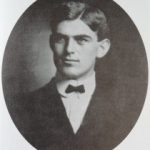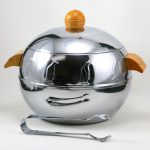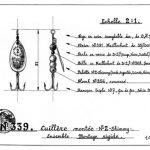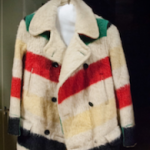In 1920 the aluminum cookware industry in Wisconsin gained control of over 50 percent of the total national market, after selling less than five percent in 1910. By 1929, West Bend ranked third in the nation in sales of aluminum cookware; however, during the Great Depression and especially the years prior to World War II, aluminum was moved to the mandatory priority list, reserving all of the material for war production. The soaring demand for aircraft and other products led to supply constraints in the aluminum industry and threatened production at West Bend. Fortunately, the firm won a naval contract to produce 20 millimeter Oerlikon brass anti-aircraft cartridge cases. Cylindrical in form, these containers cased cartridges for use in anti-aircraft guns fired from aboard ships in defense against aerial attack.
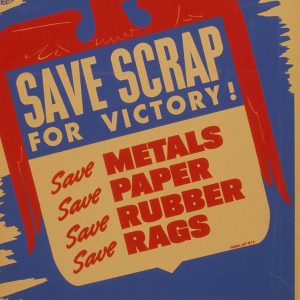
By 1941, government-contracted employees worked around the clock, and the West Bend factory produced over six million cartridge cases each month. Due to labor shortages, most of the work was done by women who had been encouraged to join the workforce as a patriotic duty. (In the postwar era, women continued to work – especially at West Bend – although many returned to being homemakers or took on jobs as nurses or in clerical or teaching positions). By the end of the war, West Bend had earned six Navy “E” Awards for outstanding achievement in production of war equipment.
As peace and stability returned after the war, manufacturers returned to consumer production, and a new market appeared for household goods, such as the Penguin Hot and Cold Server. Advertisements from the 1950s and 1960s, and an instruction booklet that came with the Penguin, indicate its material as not aluminum but stainless steel. Stainless steel was easier to clean and deemed more sanitary than other metals because of its resistance to corrosion. In 1961 West Bend dropped “Aluminum” from its name to reflect its use of a variety of materials such as stainless steel, copper, brass, and plastic.
Written by Ann Glasscock, August 2014.
Featured image: trucks driving tons of scrap metal through town during a WWII scrap drive. Image courtesy of Wikimedia Commons.
SOURCES
Mollet-Van Beckum, Janean. Washington County’s Aluminum Industry. Charleston: Arcadia Pub., 2009.
Rock, James M. “A Growth Industry: The Wisconsin Aluminum Cookware Industry, 1893-1920.” Wisconsin Magazine of History 55 (1971-1972): 86-99.


